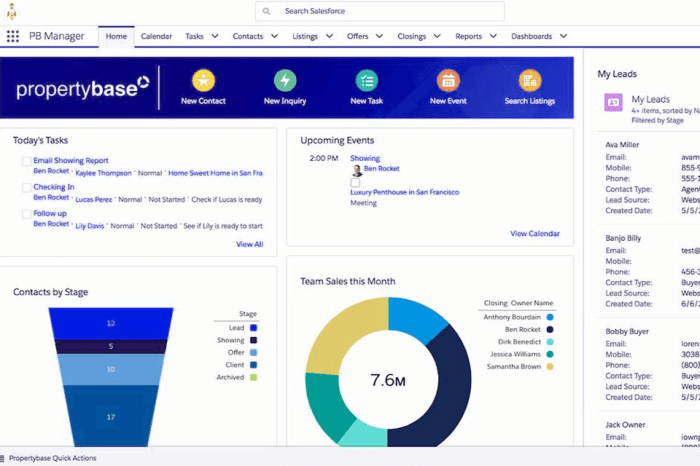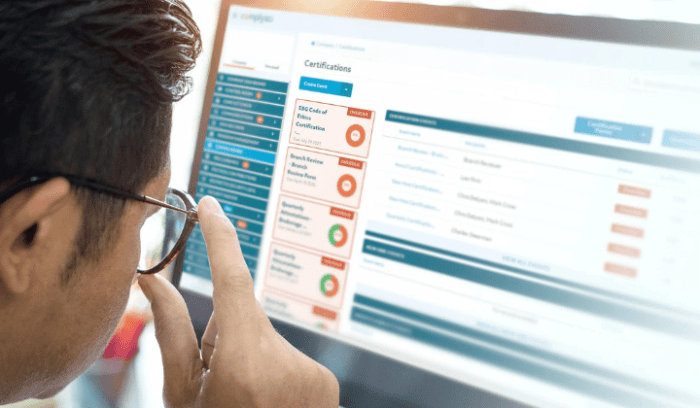Real estate leasing software streamlines the entire process, from property listings to tenant management. It automates tasks, reducing manual errors and freeing up valuable time for other critical aspects of your business. This efficiency translates directly into increased profitability and a more organized approach to managing your properties.
This software offers a range of features, from digital lease agreements and online payments to comprehensive tenant communication tools. With real-time data and insightful reporting, you gain unparalleled visibility into your portfolio’s performance.
Real estate leasing software is transforming how property managers handle the complexities of rental properties. This detailed guide explores the features, benefits, and considerations for choosing the right software solution. We’ll delve into different types of leasing software, their functionalities, and how they streamline operations, ultimately boosting profitability and efficiency.

Source: fixthephoto.com
Understanding the Importance of Real Estate Leasing Software
Managing rental properties, from advertising vacancies to handling lease agreements and tenant communication, can be a time-consuming and complex process. Manual methods are prone to errors, delays, and inefficiencies. Real estate leasing software streamlines these processes, providing a centralized platform for all aspects of property management. This automation saves valuable time, reduces administrative burdens, and minimizes the risk of errors, ultimately boosting profitability.
Key Features of Effective Leasing Software, Real estate leasing software
Modern real estate leasing software goes beyond basic functionalities. Look for software that offers:
- Property Listing and Management: Easy-to-use tools for creating and updating property listings, including high-quality photos and detailed descriptions.
- Tenant Application and Screening: Automated processes for receiving, reviewing, and approving tenant applications, including background checks and credit reports. This helps to ensure quality tenants.
- Lease Agreement Management: Automated lease creation, tracking, and management, reducing the risk of errors and ensuring compliance with local regulations.
- Rent Collection and Payment Processing: Integration with payment gateways for secure and efficient rent collection. This could include automated reminders and late payment notices.
- Tenant Communication and Reporting: Tools for sending important communications to tenants, managing maintenance requests, and providing comprehensive reporting on property performance.
- Compliance and Legal Features: Built-in compliance tools to ensure adherence to local and state regulations, which are crucial for avoiding legal issues.
Types of Real Estate Leasing Software
Different types of real estate leasing software cater to various needs and budgets. Options range from basic property management software to more comprehensive solutions.
Cloud-Based vs. On-Premise Solutions
Cloud-based software is generally more accessible and scalable, offering flexibility and remote access. On-premise solutions might offer more customization options but often come with higher initial costs and maintenance requirements.
Specialized vs. General-Purpose Software
Some software focuses specifically on apartment complexes or commercial properties, while others are more general-purpose. Choosing the right type depends on the specific needs of the property portfolio.
Choosing the Right Real Estate Leasing Software
Selecting the best software requires careful consideration of several factors. Consider these key points:
- Budget: Software costs vary significantly based on features and functionalities.
- Scalability: Choose software that can adapt to your growing business needs.
- User-Friendliness: Ease of use is paramount for efficient adoption by your team.
- Integration Capabilities: Look for software that integrates seamlessly with other tools you already use.
- Customer Support: Reliable support is crucial for resolving issues and getting help when needed.
Benefits of Implementing Real Estate Leasing Software
Implementing real estate leasing software brings numerous advantages:
- Increased Efficiency: Automation streamlines tasks and reduces manual work.
- Reduced Errors: Automated processes minimize human error and ensure accuracy.
- Improved Tenant Experience: Streamlined communication and online portals enhance tenant satisfaction.
- Enhanced Profitability: Reduced operational costs and improved rent collection contribute to higher profits.
- Better Compliance: Automated tools help maintain compliance with local regulations.
Frequently Asked Questions (FAQ): Real Estate Leasing Software
Here are some frequently asked questions about real estate leasing software:
- Q: How much does real estate leasing software cost?
- A: Pricing varies significantly depending on the features, functionalities, and the number of properties managed. Contact vendors directly for quotes.
- Q: What are the benefits of using online portals for tenants?
- A: Online portals enable tenants to access lease information, pay rent, report maintenance issues, and communicate with property management easily.
- Q: How can I choose the right leasing software for my property management needs?
- A: Evaluate your specific needs, budget, and the desired features. Compare different software options and read reviews.
Conclusion and Call to Action
Real estate leasing software is a powerful tool for property managers looking to streamline operations, improve efficiency, and enhance profitability. By automating key processes, reducing errors, and improving tenant communication, you can significantly improve the overall management of your properties. Explore the options available and choose the software that best suits your specific needs. Contact us today for a free consultation to learn how leasing software can transform your property management business.
Sources:
CTA: Ready to revolutionize your property management? Contact us today for a free consultation and discover how our real estate leasing software can help you optimize your operations and maximize your returns.
In conclusion, real estate leasing software is a powerful tool for modern property management. By automating key tasks, improving communication, and providing valuable data insights, it empowers you to optimize your operations and enhance your bottom line. Investing in such a solution is a strategic move towards a more efficient and profitable future.
FAQ Overview
What types of properties can this software manage?
The software can manage various property types, including residential apartments, commercial spaces, and even mixed-use buildings. Its flexibility allows for customization to meet the specific needs of different property portfolios.
How secure is the tenant data?
Data security is paramount. Reputable real estate leasing software providers utilize industry-standard security protocols to protect sensitive tenant information, ensuring compliance with relevant regulations.
Is there a mobile app available?
Many real estate leasing software platforms offer mobile apps, allowing you to access and manage key aspects of your business from anywhere, anytime.
What are the typical costs associated with this software?

Source: surferseo.art
Software costs vary depending on the features, the number of properties managed, and the chosen subscription model. It’s recommended to request detailed pricing information from potential providers.